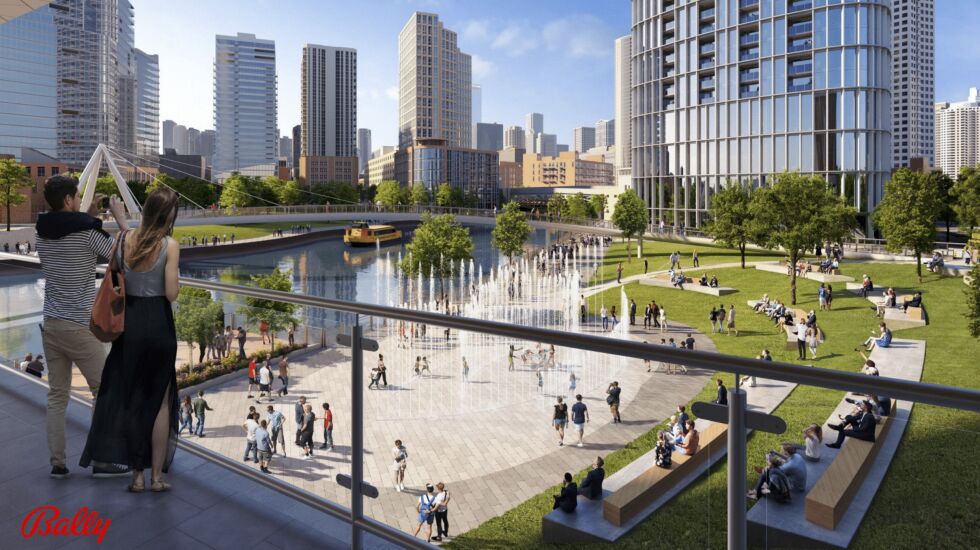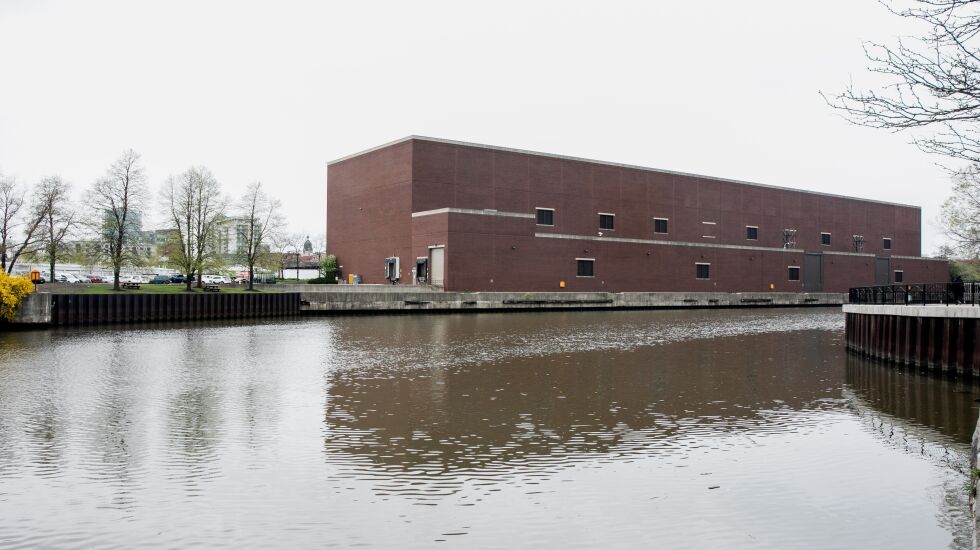
State gambling regulators now hold the cards in Chicago’s casino game.
Bally’s Corporation on Wednesday filed its application with the Illinois Gaming Board seeking approval of its plan for a $1.7 billion riverfront casino-resort at Chicago Avenue and Halsted Street.
It’s the latest step toward breaking ground on the massive entertainment complex in an already congested River West corridor, a plan Mayor Lori Lightfoot signed off on and pushed through the City Council in May. The project still needs approval from the Chicago Plan Commission.
The city is banking on the Rhode Island-based gambling company to obtain both green lights in time to start taking bets at a temporary casino installed at the landmark Medinah Temple in nearby River North as early as next summer — but that timeline could be a long shot.
The 2019 state law that created the Chicago casino license and five others across Illinois gives the Gaming Board up to a year to review Bally’s application, with the possibility of an extension beyond that.
State regulators typically have taken at least that long to vet Illinois’ other new casino applicants. More than two years elapsed from the time partners in the Hard Rock Casino Rockford applied for Gaming Board approval until they launched a temporary casino last fall.

That’s the only new casino from the 2019 expansion to start taking bets, though a temporary casino in Waukegan, run by Las Vegas-based Full House Resorts, is expected to open this fall.
Marcus Fruchter, the administrator of the chronically understaffed Gaming Board, has blamed pandemic delays for the lengthy review timetable, as well as a competitive bidding process for the suburban license that further drew out the licensing saga.
Potentially easing the process for Bally’s is the fact that it already operates a state-licensed casino in Rock Island, a known entity for the Gaming Board.
Lightfoot has long urged the agency to be ready to “expeditiously” review the Chicago proposal in an effort to open the gaming revenue spigot. City budget leaders say they expect the finished casino — slated to open around 2026 — to churn out about $200 million annually for desperately underfunded police and firefighter pension funds.
Bally’s has already made an upfront payment of $40 million to the city, one of the cards the gambling firm put down to beat out two other finalists in Lightfoot’s casino developer selection process. The company also has to pay the state a $250,000 application fee.
“We look forward to working with the Illinois Gaming Board and the city of Chicago to bring a world-class entertainment destination resort to Chicago,” said Christopher Jewett, Bally’s vice president of corporate development.
But some Wall Street experts have questioned whether the company will be able to deliver on the ambitious project, which also calls for a hotel, a 3,000-seat theater, a Riverwalk extension, an outdoor park and a music venue, among other amenities.
Fitch Ratings downgraded its outlook on Bally’s to “negative” earlier this summer, citing “the execution risk” and rigorous opening timeline for the Chicago casino project.
Some vocal River North residents opposed to the project are also calling for major changes to the plan, though they are largely resigned to the likelihood that Bally’s will be setting up shop soon.
“Barring unforeseen developments, Bally’s will be our neighbor and we want as positive and productive a relationship as possible for the good of all stakeholders,” said Brian Israel, president of the River North Residents Association.
Bally’s will have up to two years to operate the temporary casino earmarked for Medinah, with the possibility of a yearlong extension beyond that.







